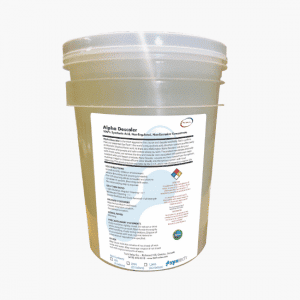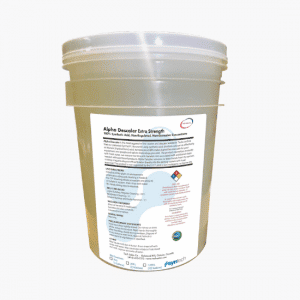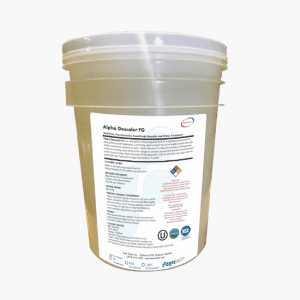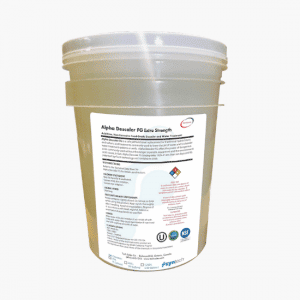Food Processing Applications
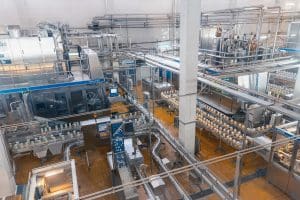 Water is routinely used in food production as an ingredient, for cleaning, sanitation and manufacturing purposes. Water is used in cooling and heating jackets for production pots and kettles and other types of water heaters and boilers. Water is also applied for washing the end product through spray systems. Steam generators may be used for process steam in the production process with often food contact involved. Many of these and other food processes also involve heat exchangers. While several types of heat exchangers are used in the food industry, the most common are plate heat exchangers. They are one of the most efficient methods of heat transfer for fluid products. The shell and tube type can be used as well and would be primarily copper-nickel but can also be stainless steel. The plate exchangers are usually stainless steel or titanium. Much of the equipment used, from pots, and water jackets to steam generators and plate exchangers require the material to be stainless steel.
Water is routinely used in food production as an ingredient, for cleaning, sanitation and manufacturing purposes. Water is used in cooling and heating jackets for production pots and kettles and other types of water heaters and boilers. Water is also applied for washing the end product through spray systems. Steam generators may be used for process steam in the production process with often food contact involved. Many of these and other food processes also involve heat exchangers. While several types of heat exchangers are used in the food industry, the most common are plate heat exchangers. They are one of the most efficient methods of heat transfer for fluid products. The shell and tube type can be used as well and would be primarily copper-nickel but can also be stainless steel. The plate exchangers are usually stainless steel or titanium. Much of the equipment used, from pots, and water jackets to steam generators and plate exchangers require the material to be stainless steel.
The food grade issue.
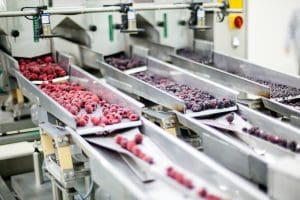 HCl or hydrochloric acid based descalers are rarely used and while some “may” obtain approval for limited use in food processing, removing any residual trace is extremely important for pure safety reasons. Traditional food grade acids use either food grade phosphoric acid which can be quite costly and tends to leave a residual film which can negatively affect heat transfer, of more often a citric based acid is used. Citric acid is safe for stainless steel but can be very slow to act thereby extending downtime in maintenance descaling.
HCl or hydrochloric acid based descalers are rarely used and while some “may” obtain approval for limited use in food processing, removing any residual trace is extremely important for pure safety reasons. Traditional food grade acids use either food grade phosphoric acid which can be quite costly and tends to leave a residual film which can negatively affect heat transfer, of more often a citric based acid is used. Citric acid is safe for stainless steel but can be very slow to act thereby extending downtime in maintenance descaling.
The FDA gives citric acid “Food Additive Status” and “designated as safe for general or specific, limited use in food.” The risks of consuming citric acid or applying it to your skin generally seem to be low, and it is used in most countries, including the U.S., with little restriction. However, citric acid, when used in cleaning products, can be irritating to the skin and it can also potentially irritate the nasal passageways and trigger asthma symptoms.
Citric May Be Linked to Mold Reactions – While studies haven’t clearly shown that citric acid created from Aspergillus is harmful, there is some concern that it can cause impaired immune function, allergies and other side effects if inhaled. The species of Aspergillus used to make the acid (Aspergillus niger) does not seem to be lethal or toxic in most situations, but people with impaired immune function may benefit from limiting their exposure. Replacing Citric acid would be another solution.
Citric Acid Strength and Speed – The biggest drawback of using a citric based descaler is speed and cost. Cost is higher than Hcl based descalers but it also takes longer to remove lime and rust deposits which can add to downtime in a production process, adding to maintenance cost. Some blended solutions of citric acid is often combined with other ingredients to speed up the rate of scale dissolution but these additives should be checked for safety and if not clearly listed or kept proprietary for no particular reason, they should be suspect as to whether these additives are food approved.
Alpha Descaler FG, in the standard versions and extra strength version provides a fully tested alternative to old style descalers. The products are organic and 100% biodegradable in 10 days, even as it comes full strength. They are truly non-toxic and is indicated as such with their LD50 toxicity tests clearly shown on the Safety Date Sheet for each material. Any descaler used in the food industry should clearly state the toxicity LD50 level on its safety data sheet. For example the LD50 for Alpha Descaler FG Extra Strength is 8,650 mg/kg which is much higher (and therefore much more safe than that of Citric acid of similar strength which is in the 5000 to 6000 mg/kg range.
Removing Scale buildup.
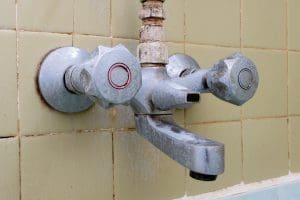 The main component of any scale buildup in food processing applications is calcium carbonate.
The main component of any scale buildup in food processing applications is calcium carbonate.
As mentioned before citric based descalers are generally slow to remove scale. Some versions allow for the descaler to be heated up to accelerate the scale removal process, which it does. However, this is dangerous for two reasons. First, you now use a hot chemical and any unexpected leaks can be a danger to personnel. Secondly, this will accelerate more acid fumes which can also be detrimental to the health of the maintenance crew. And with all traditional descalers, they will slow down as they get weaker during the descaling process. This faster start causes excess gas production and unless the system is well vented during the descaling process it prevents the descaling solution from contacting the scale surface to dissolve it when the gas is present. The process to descale can take even longer as a result. So very low gas and fume production by the chemical is an advantage especially with a citric based descaler.
Alpha Descaler FG and Alpha Descaler FG Extra Strength are essentially non-fuming and the foaming action is very low so venting is still required but the low foaming makes the chemical contact much more efficient for dissolving the scale buildup. The cleaning process becomes more efficient. Both versions of Alpha Descaler FG (regular and extra strength) start and continue to dissolve the scale buildup at the same rate throughout the process and at a much faster rate than. And they both have the added bonus of essentially being non-fuming, with no potentially deleterious effects that can occur from the fumes of citric based descalers.
Rust Removal from Food Processing Systems.
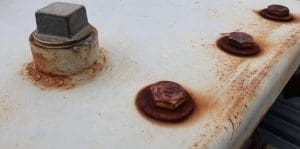 Whether its spray nozzles, water jackets, steam systems, boilers, plate exchangers, or even shell and tube heat exchangers, they all tend to be stainless steel in the food processing industry. Especially under very high heat, rust deposits can occur in the water and steam channels of the equipment. These rust deposits can become a breeding ground for bacteria. So if the rust can be removed along with the scale, it helps prevent the serious problems bacteria can cause. Citric based descaler are actually quite good for rust removal.
Whether its spray nozzles, water jackets, steam systems, boilers, plate exchangers, or even shell and tube heat exchangers, they all tend to be stainless steel in the food processing industry. Especially under very high heat, rust deposits can occur in the water and steam channels of the equipment. These rust deposits can become a breeding ground for bacteria. So if the rust can be removed along with the scale, it helps prevent the serious problems bacteria can cause. Citric based descaler are actually quite good for rust removal.
However, Alpha Descaler FG and Alpha Descaler FG Extra Strength is better and can remove rust deposits by circulating in less time.
All Alpha Descaler versions have no special requirements for shipping and considered non-hazardous. Phoshoric acid descalers and even citric descalers still should be shipped as corrosive (unless in a very weak solution). Citric Acid when wet or in solution is still corrosive to brass, copper, zinc, aluminum, lead, cast iron, and steel (but not stainless steel).
The non-toxicity is backed up with testing and proper reporting on the Safety data Sheets. They are 100% biodegradable in 10 days and marine safe. The products can do the same or better than any food grade phosphoric or citric acid based descalers.
ALL PRODUCTS
-

Alpha Descaler
US $ 175.00 – US $ 1,485.00 Select options This product has multiple variants. The options may be chosen on the product page -

Alpha Descaler Extra Strength
US $ 250.00 – US $ 2,420.00 Select options This product has multiple variants. The options may be chosen on the product page -

Alpha Descaler FG
US $ 160.00 – US $ 1,210.00 Select options This product has multiple variants. The options may be chosen on the product page -

Alpha Descaler FG Extra Strength
US $ 210.00 – US $ 1,650.00 Select options This product has multiple variants. The options may be chosen on the product page
If you need consulting beyond the scope of a complementary sales inquiry, please contact us by email.

